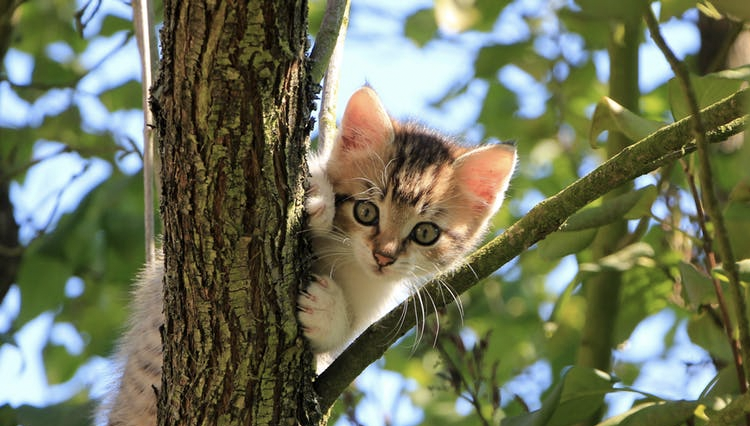The challenges of raising an adolescent cat
It is hard to digest the fact that your cute kitten is tying you up in knots with their adolescent behaviour. Just like human teenagers, our feline teens go through the ‘rebel without a cause’ phase. Cats often like to test their independence during the adolescent stage. Apart from this, their terrible curiosity to explore coupled with their high spirit is bound to get them into trouble. This phase poses quite a challenge for inexperienced cat parents.
When is a kitten an adolescent?
A kitten’s development can be classified into five categories:
- Neonatal period – From birth to 2 weeks of age
- Transitional period – From 2 to 3 weeks of age
- Socialisation period – From 3 weeks of age to 10 weeks of age
- Juvenile phase – From 10 weeks of age till sexual maturity
- Adolescent period – Between 6 and 18 months of age
Common adolescent behaviour problems in cats
- Predatory or play aggression – Social play is at its peak in kittens during the adolescence stage. They become high spirited and seem very energetic. They tend to play aggressively, even roughly. If they do not have a play mate your ankles are the next best thing for them! It is very easy for you to lose your cool as an adolescent cat can try the patience of a saint! It is usually during this stage that cats love to test their independence and curiosity outdoors and as a result many of them get lost.
The best thing for you to do in this stage is to bring home a pair of kittens who will give company to your pet. They can play with each other and burn their energy rather than destroying your home or hurting your poor ankles. If you would like to continue with a single cat household then you must keep them occupied with interactive toys.
- Scratching – Cats love scratching. But during adolescence, cats will have longer and stronger claws that can cause more harm than good. As they like to mark their territory and portray the fact that they are looking out for a mate they will be an increase in their marking behaviour. Which means that they will spray at inconvenient places.
You can trim their claws so that they no longer scratch. Trimming their claws followed by a tasty treat will help you get rid of the scratching problem.
- Accidents – Well, curiosity can literally kill your cat. During adolescence stage cats can jump out of doors, cupboards or windows with great ease. Sometimes they may not be so lucky. They can meet with an accident or end up having fights with other cats in the neighbourhood and come home seriously injured. They can also turn your home upside down my pulling sheets, table mats and damaging your furniture.
To avoid this, you must cat proof your home and be aware of your cat’s whereabouts.
- Romantic cats – Once your cat is in the adolescence stage they also become sexually mature. They will notice and get attracted to the opposite sex. Once they do this they will start spraying urine. This scent marking behaviour proudly states their sexual availability to other felines. A male will spray urine in particular corners of the home and the females apart from spraying will also be more vocal when she is in heat. Female kittens in heat will roll on the floor and yowl like they are in pain. They can also escape from home to hook up with other male cats and possibly get pregnant.
Spaying or neutering your pet at this stage will stop the hormones that instigate such behaviour. They will stop marking and lose their aggressiveness. They will then become more affectionate and easier to handle.
Patience is the key
Adolescence can be a trying time for both cats and their owners. Handling a teen is never easy with their changing hormones, high energy and a general shift in their attitude and behaviour. You just have to understand that is a temporary phase which they will soon outgrow. So, understanding feline adolescence behaviour and following the tips mentioned above will help you tackle your kitty’s problem the right way.
You can always contact your vet for further professional advice.

